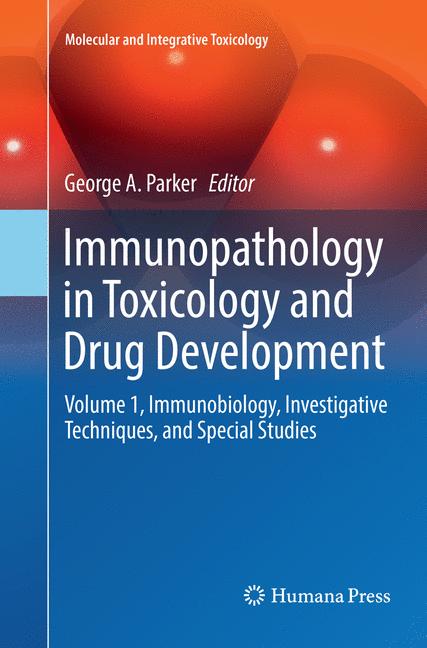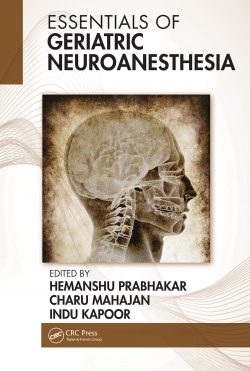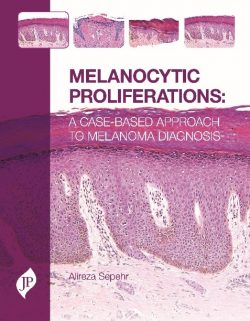This book provides a fundamental understanding of immunopathology and immunopathologic processes, with particular attention to nonclinical toxicology studies. Chapters provide an overview of general immunobiology, cells of the immune system, signaling and effector molecules, and immunopathology assays. A companion volume, Immunopathology in Toxicology and Drug Development: Volume 2, Organ Systems, offers summaries of organ-specific immunobiology and immunopathology as well as common responses to xenobiotics.
These informative and strategic books were created in response to the large segment of drug development that focuses on chronic diseases, many of which involve alterations to the immune system. Therapies that target these diseases commonly involve some form of immunomodulation. As a result, the two volumes of Immunopathology in Toxicology and Drug Development are critical texts for individuals involved in diverse aspects of drug development. Readers will acquire a thorough understanding of immunopathology for detection and accurate interpretation of pathologic effects of xenobiotics on the immune system.
Basic Immunobiology.- Cells of the Immune System.- Signaling and effector molecules in immunity.- Development of immune system organs.- Aging of immune system organs.- Flow cytometry and immunophenotyping in drug development.- Pathology evaluation for detection of immunomodulation.- Enhanced immunohistopathology.- Clinical Pathology Assays in Immunopathology.- Application of immunohistochemistry in toxicologic pathology of the hematolymphoid system.- Morphometry and stereology in immunopathology.- Molecular techniques in immunopathology.- Current issues in developmental immunotoxicity.- The Murine local lymph node assay.- Host Resistance assays for efficacy and immunotoxicology safety evaluations. “This book provides a fundamental understanding of immunopathology and immunopathological processes. … serve as an educational book for those who are interested in learning immunopathology in xenobiotics or in general basic immunology. … a terrific book that I will certainly integrate into my graduate teaching. It covers the field in detail, includes the most updated content, and is suitable for a broad audience from faculty to students, and from novice to senior scientists who are interested in this field.” (Hongmin Ni, Doody’s Book Reviews, October, 2017)
George A. Parker, a leading expert in the field of toxicologic pathology, is currently a Senior Scientific Director, Global Pathology, at Charles River Laboratories. Dr. Parker is a graduate of Auburn University College of Veterinary Medicine and completed a residency program in veterinary pathology at the Armed Forces Institute of Pathology, as well as a Ph.D. program in molecular and cellular immunology at the University of Medicine and Dentistry of New Jersey. He is a board-certified pathologist and toxicologist as well as a fellow of the distinguished International Academy of Toxicologic Pathology. He has more than 35 years of experience in the field of toxicologic pathology, with an emphasis on the nonclinical safety assessment of drugs, agricultural chemicals, and industrial chemicals. Dr. Parker’s areas of specific expertise include immunopathology, toxicologic pathology of juvenile animals, and radiation pathology.
This book provides a fundamental understanding of immunopathology and immunopathologic processes, with particular attention to nonclinical toxicology studies. Chapters provide an overview of general immunobiology, cells of the immune system, signaling and effector molecules, and immunopathology assays. A companion volume, Immunopathology in Toxicology and Drug Development: Volume 2, Organ Systems, offers summaries of organ-specific immunobiology and immunopathology as well as common responses to xenobiotics.
These informative and strategic books were created in response to the large segment of drug development that focuses on chronic diseases, many of which involve alterations to the immune system. Therapies that target these diseases commonly involve some form of immunomodulation. As a result, the two volumes of Immunopathology in Toxicology and Drug Development are critical texts for individuals involved in diverse aspects of drug development. Readers will acquire a thorough understanding of immunopathology for detection and accurate interpretation of pathologic effects of xenobiotics on the immune system.





